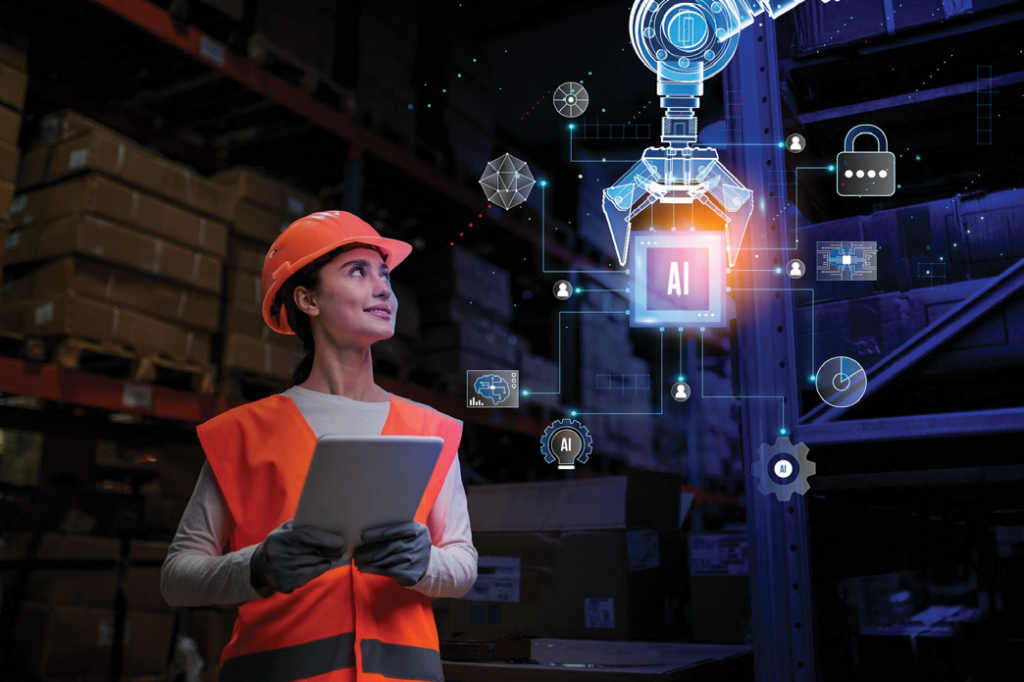
Understanding how Generative AI can be used in logistics, its applications and limitations.
Logistics companies are slowly but surely integrating artificial intelligence (AI) technology into their operations. However, they are cautious about adopting chatbots that are common in the retail space today.
Company executives acknowledge the potential cost savings and efficiency benefits associated with tools like ChatGPT, a form of generative AI. Nevertheless, they are prioritizing ensuring that this digital approach doesn’t lead to customer frustration, particularly for clients handling substantial shipping volumes involving goods worth millions of dollars, across the globe.
Harnessing The Power of Generative AI into Customer Service
Prominent companies such as Freight brokerage RXO, trucking firm XPO, logistics technology provider Phlo Systems, and shipping company DFDS are actively exploring how generative AI can transform their customer service divisions. Their focus includes automating tasks like shipment tracking, load booking, and import declarations.
The quest to incorporate generative AI into operations began after OpenAI introduced its ChatGPT bot in November this year. This technology, along with similar offerings, has the ability to process vast datasets, recognize patterns, make predictions, and respond to queries in a conversational manner, significantly reducing the time required to complete tasks.
Other Areas Where AI can help
Generative AI has already found applications beyond logistics. Law firms utilize it for legal research and document drafting, retailers deploy it to analyze customer search queries and offer relevant product recommendations, and travel companies like Expedia use chatbots for trip planning. Grocery retailers like Instacart also employ AI chatbots to provide answers to customer inquiries regarding recipes.
Logistics companies envision the future use of generative AI in enhancing forecasting, procurement, inventory management, and shipping decisions. Currently, their primary focus is on experimenting with these tools in customer support, leveraging their capacity to understand plain conversational language and provide rapid, comprehensive responses. Experts foresee generative AI enhancing the customer experience by delivering tailored responses within minutes, in contrast to traditional chatbots with preset answers or human workers who require more time to find suitable responses.
Limitations and Apprehensions in Using AI
However, generative AI has limitations. The technology is in its nascent stages and is still evolving. The chatbot is only good as the information that it has been fed on. In fact, there have been instances when the chatbot has given wrong answers to queries. Additionally, security concerns arise when using proprietary data or customer information to train AI systems, leading some companies to restrict their employees from using such technology.
The stakes are particularly high when applying generative AI to supply-chain decisions, given the complexity and proprietary nature of the data involved. In logistics customer support, the challenge lies in facilitating the movement of large shipment volumes via various modes of transportation (aircraft, trucks, trains, and containerships) while dealing with fast-changing and intricate data.
AI Adoption in Logistics Companies
Jared Weisfeld, Chief Strategy Officer at RXO based in Charlotte, North Carolina, highlights the delicate balancing act involved in using generative AI with retail and industrial clients. He points out, ““When you think about what could go wrong over the life of the load, you as a carrier, you as a shipper, sometimes you don’t necessarily want to be talking to a chatbot.”
Weisfeld said that RXO is actively exploring methods to automate various tasks, including customer support and load booking, especially for small and medium-sized businesses. Such automation can lead to quicker responses to customer queries and free up the company’s sales staff to concentrate on acquiring new clients.

However, RXO plans to maintain the option for clients to interact with a human representative. “You can’t have a shipper go ahead and log on to the system where the order’s late and you’re pinging a chatbot. You need a hybrid approach,” Weisfeld said.
The central concern for RXO revolves around enhancing the efficiency of their personnel while ensuring that their efforts contribute to making customers’ lives more convenient rather than complicating matters further.
At the core of RXO’s strategy lies the fundamental question: “How do we enhance the efficiency of our workforce while simultaneously simplifying our customers’ experiences?” expressed by Jared Weisfeld, the Chief Strategy Officer at RXO.
Jonathan Wright, Global Managing Partner of Finance and Supply Chain Transformation at IBM Consulting, emphasizes that for AI technology to gain widespread acceptance, supply-chain managers must place complete trust in it when making decisions regarding goods orders, inventory management, and supplier negotiations. Jonathan Wright highlighted, ““We have to have understanding and knowledge of what AI I’m using, what data I’m using and really tight governance around that,” Wright said. “In our personal life, we might be comfortable with 80, 90% correctness. In our business world, it’s got to be tight—110%.”
AI in Software Development, Trucking and Customs
XPO, a trucking company, intends to train an in-house version of a ChatGPT-like bot to enable customers to track freight, receive rate quotes, and initiate shipment pick-up requests. Jay Silberkleit, XPO’s Chief Information Officer, emphasizes their commitment to keeping data private and ensuring the relevance and accuracy of responses through stringent control over data usage
The Britain-based Phlo Systems has recently introduced an AI-powered chatbot for customs declarations, replacing a previous system reliant on a list of frequently asked questions, said Chief Executive Saurabh Goyal. The chatbot offers straightforward responses to inquiries, such as the type of declaration needed for importing fish from a European country. Currently, the chatbot handles approximately 70% to 80% of queries, with the remainder escalated to human staff for resolution.

DFDS, a regional shipping company in Denmark, has initially employed generative AI for software development, with an eye toward potential future applications in customer support. Rune Keldsen, the company’s Chief Technology Officer, underscores the need for sensitivity regarding the quality of responses generated by generative AI, “What we need to be very sensitive about is, what is the quality of the answers you can get out of generative AI? Generative AI is very strong at large data sets and crunching large amounts of data, but it’s less strong at ensuring the predictability of the answers that come out.”
From tracking shipments and booking loads to simplifying customs declarations, generative AI is already finding applications that streamline operations.
As logistics companies venture into the realm of generative AI, they do so with cautious optimism. The promise of cost savings, operational efficiency, and enhanced customer experiences is compelling, but the stakes are high in an industry where precision is paramount.